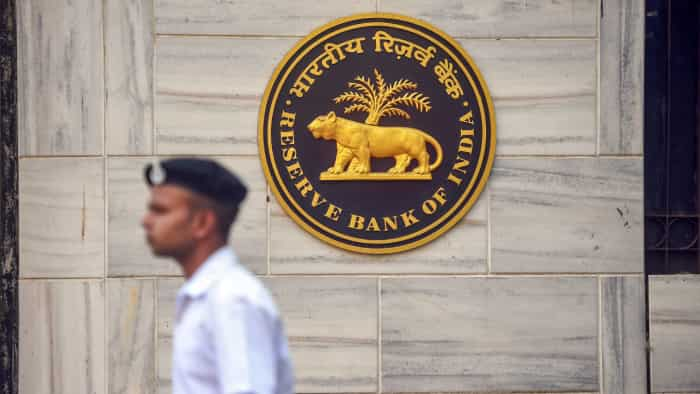Resolutions under insolvency law likely to touch 300 this fiscal; efforts on to speed up process: Officials
Under the IBC, which provides for a market-linked and time-bound resolution process of stressed assets, creditors have witnessed recoveries of nearly Rs 3 lakh crore so far and the recovery amount stood at more than Rs 51,000 crore in 2022-23 financial year.
)
The number of resolutions of stressed assets under the insolvency law is likely to touch 300 this financial year, after rising 80 per cent in the last fiscal, and efforts are on to speed up the process for faster resolutions, senior officials said on Sunday.
Corporate Affairs Secretary Manoj Govil said the Insolvency and Bankruptcy Code (IBC) ecosystem needs to be prepared to deal with 1,000 resolutions.
Under the IBC, which provides for a market-linked and time-bound resolution process of stressed assets, creditors have witnessed recoveries of nearly Rs 3 lakh crore so far and the recovery amount stood at more than Rs 51,000 crore in 2022-23 financial year.
The Insolvency and Bankruptcy Board of India (IBBI) Chairperson Ravi Mital said the number of resolutions rose 80 per cent to 180 in the last financial year and is likely to touch 300 this year (2023-24 fiscal) and added that till August 2023, the resolutions stood at around 135.
Further, he urged insolvency resolution professionals to speed up their efforts in resolving the cases.
Speaking at the event in the national capital to mark the seventh annual day of the IBBI, a key institution in implementing the IBC, Mital said the law is a factor in the reduction of non-performing assets. He also stressed that the law is not a recovery mechanism but a resolution mechanism.
Govil said efforts are on to speed up the resolution process and that the government is willing to take up amendments to the IBC to make the resolution process faster.
Mentioning about the pace of resolutions under the IBC, Govil said this financial year, the expectation is that the number of resolutions will go up to 300 and also wondered whether that is "sufficient" to unclog the pipeline.
Citing a study, he said that around 5,000 new cases are filed every year under the IBC and added that the IBC ecosystem should have the capacity to deal with at least 1,000 resolutions.
Efforts are on to make the resolution process faster and more smooth. This can be done by filling up posts, improving processes and regulations, among others, he noted. As many as 300 resolutions will be good but the ecosystem should be prepared to deal with 1,000 cases, Govil said.
NCLT President Chief Justice (Retd) Ramalingam Sudhakar stressed on pre-packaged insolvency resolution process in the context of Micro, Small and Medium Enterprises (MSMEs).
"Post Covid, it has been shown very evidently that MSMEs are in great distress... The next phase of evolution in the IBC should be to fine tune... Pre-packaged insolvency," he said.
Further, Sudhakar said an incremental approach is proposed for the development of a comprehensive and overarching platform for the insolvency ecosystem.
"The system should be AI-enabled with a proper decision support system and must have technology... For an integrated case management system... AI will be considered for suitable deployment as part of future contours in the insolvency ecosystem," he said.
Sudhakar also mentioned the need for developing an AI-enabled centralised e-platform for case management before the NCLT. An AI-enabled platform of the NCLT that will handle all processes, including delivery of notices and fixing of hearings, with minimal human interface is another area of focus, he added.
The National Company Law Appellate Tribunal (NCLAT) Chairperson Justice Ashok Bhushan said the judiciary's role in interpreting the IBC has been transformative.
Through judgements, it has not only resolved disputes but has also shaped the IBC's evolution ensuring that it remains a robust and effective tool for insolvency and bankruptcy in India, he said and added that technology has been a force multiplier in implementation and evolution of the IBC.
With the global economy becoming increasingly interconnected, events like trade, pandemics and financial crisis in one part of the world can have ripple effects in India. The IBC needs to be aligned to address the challenges arising from such global uncertainties, ensuring timely and effective resolution, he noted.
"Rapid technological advancements can render certain industries or businesses' models obsolete. The IBC will need to cater to the insolvencies arising out of such disruptions and ensure that resources are re-allocated effectively.
"With Indian businesses expanding globally, cross border insolvency will become more common. The IBC needs to align with the international framework and conventions to ensure seamless coordination between jurisdictions," Bhushan said.
Catch the latest stock market updates here. For all other news related to business, politics, tech, sports, and auto, visit Zeebiz.com.
Get Latest Business News, Stock Market Updates and Videos; Check your tax outgo through Income Tax Calculator and save money through our Personal Finance coverage. Check Business Breaking News Live on Zee Business Twitter and Facebook. Subscribe on YouTube.
RECOMMENDED STORIES

Katra-Srinagar Vande Bharat Train: Northern Railway announces train timings; check fare, route and other key details

Power of Rs 15,000 SIP: How long it will take to achieve Rs 7 crore corpus? See calculations to know
08:38 PM IST










 NCLT registers 43% jump in debt resolution cases: IBBI
NCLT registers 43% jump in debt resolution cases: IBBI Insolvency and bankruptcy board looks to crowd source ideas, seeks public comments on regulations
Insolvency and bankruptcy board looks to crowd source ideas, seeks public comments on regulations Insolvency and Bankruptcy Code: IBBI amends regulations to boost value of stressed companies
Insolvency and Bankruptcy Code: IBBI amends regulations to boost value of stressed companies IBBI reduces timelines for activities under voluntary liquidation process
IBBI reduces timelines for activities under voluntary liquidation process IBBI amends voluntary liquidation process regulations
IBBI amends voluntary liquidation process regulations